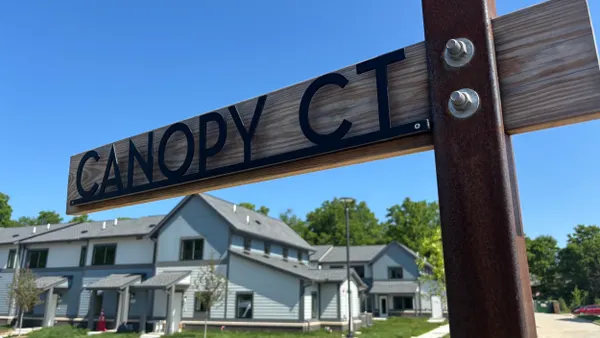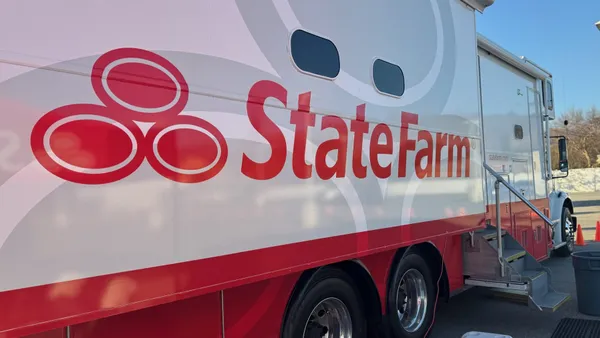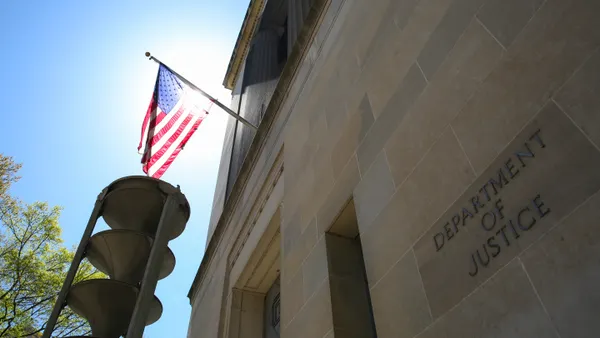Dive Brief:
- The first deadline for repayment of back rent accrued by Los Angeles renters during the city’s COVID-19 eviction moratorium passed on Aug. 1.
- An estimated 137,000 households in Los Angeles owed a total of $431 million in back rent as of early May, according to a report by The Real Deal. This collective debt has raised concerns about a potential wave of evictions that may follow the Aug. 1 deadline by which tenants were required to pay rent owed between March 2020 and September 2021.
- Landlord organizations, including the Apartment Association of Greater Los Angeles, have been working with tenants to access housing assistance funds, according to a press release. However, owners with delinquent tenants could face a lengthy and expensive eviction process, Daniel Yukelson, the organization’s executive director, told Multifamily Dive.
Dive Insight:
While the state of California’s COVID-19 eviction moratorium ended on July 1, 2022, an eviction ban in the city of Los Angeles lasted for seven more months, expiring on Feb. 1. Los Angeles County’s moratorium, which included the city, expired on March 30.
Tenants groups and affordability advocates say that the moratoriums were needed in order to aid apartment residents during the COVID-19 economic downturn. Both the city and county’s eviction bans were among the longest in the country, ending close to three years after the first COVID-19 lockdowns began in the U.S. A citywide rent freeze on certain rent-controlled units, enacted in March 2020, is still in effect. It is set to expire in January 2024.
Ahead of the Aug. 1 deadline, the city launched an $18.4 million emergency fund for low-income tenants, a $60 million fund for legal support and education and an information campaign on tenants’ rights and resources. Los Angeles Mayor Karen Bass said that the city aims to keep residents housed while also supporting landlords.
Rent balances owed during the second half of the moratorium will come due in February 2024.
Repayment flexibility
Yukelson urged AAGLA members and other rental housing providers to exercise restraint in their COVID debt collection efforts in a press release following the deadline. Throughout the pandemic and to the present day, AAGLA members have worked with renters to provide payment plans, partial forgiveness and help with rental assistance applications, the release said.
While many renters have met with housing providers to resolve their rent issues, others have “ghosted” them, Yukelson told Multifamily Dive, neither paying nor taking advantage of assistance programs. “[They] did not pay on Aug. 1 and owners do not expect them to pay,” he said.
Fred Sutton, senior vice president of public affairs at the California Apartment Association in Sacramento, said that tenants have long been able to apply to state housing funds. “The only individuals that would be facing issues right now either cannot qualify for those programs, or more simply did not work with their housing provider to access those funds,” Sutton told Multifamily Dive.
For now, Yukelson does not expect an immediate rise in evictions, owing to the length of the eviction process in the state of California.
“[Eviction] can take up to six months and cost anywhere between $10,000 to $50,000, and during that time, no rent is being collected,” he said. “In addition, once an eviction is adjudicated, it can take the Los Angeles [County] Sheriff’s Department one to two months to perform a lockout.”
The more common solution for the city’s landlords, he said, is to forgive all or a portion of unpaid rent, or even pay renters to leave — known as a cash-for-keys agreement — in order to recover the units and re-rent them.
Strike funds
Depending on the outcome of the ongoing writers’ and actors’ strikes affecting Hollywood, LA’s owners and operators may soon face another hurdle. However, Yukelson has not seen any significant impact on rental payments as of yet.
“Both unions have strike funds to assist members who are in need,” Yukelson explained, “but if the strike continues for protracted periods of time, rental housing providers could see union members having difficulty paying rent.”
If the strike continues, Yukelson foresees the issue compounding the ongoing financial struggles landlords have faced from unpaid rent over the last three years.
“This [would] only add to the disaster already being experienced by housing providers in Southern California … while costs [soar] under significant inflationary pressures and supply chain issues and labor shortages.”












